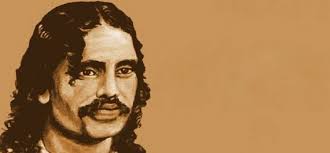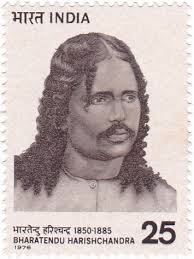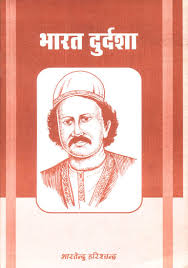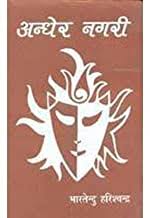Who Was #BharatenduHarishchandra?
Harishchandra created amazing poems and dramas that left benchmark. In 1880, the scholars of Kashi bestowed him with the title ‘Bharatendu.
There is hardly an individual who hasn’t heard Andheri Nagari Chaupat Raja, well Harishchandra wrote
Harishchandra created amazing poems and dramas that left benchmark. In 1880, the scholars of Kashi bestowed him with the title ‘Bharatendu.
There is hardly an individual who hasn’t heard Andheri Nagari Chaupat Raja, well Harishchandra wrote
this 155 years ago targeting British and till date, this is the most successful play in Hindi.
He wrote: “Andher Nagari, Chaupat Raja, taka ser bhaaji, take ser khaja”, (A dark city, a failing king, a penny for sweets and a penny for onion rings).
Bharatendu was the man behind
He wrote: “Andher Nagari, Chaupat Raja, taka ser bhaaji, take ser khaja”, (A dark city, a failing king, a penny for sweets and a penny for onion rings).
Bharatendu was the man behind
what is known as the ‘Hindi vernacular nationalism’. He was the driving force behind the mass movement that culminated in the popular slogan
“Hindi, Hindu, Hindustan”.
Bharatendu Harishchandra, born in 1850, is known as the 'Father of modern day Hindi literature'. And it was
“Hindi, Hindu, Hindustan”.
Bharatendu Harishchandra, born in 1850, is known as the 'Father of modern day Hindi literature'. And it was
in establishing this language that his biggest contribution lay. Much of the prose that Harishchandra wrote to establish the Hindi we know today was done in the Kavivachansudha and Harishchandra Magazine, which he founded in 1873.
Bharatendu went to the Jagannath temple in
Bharatendu went to the Jagannath temple in
Puri with his family in 1865, when he was merely 15 years of age. During this trip he was influenced by the Bengal Renaissance and decided to bring the genres of social, historical, and Puranic plays and novels into Hindi. This influence reflected in his Hindi translation of the
Bengali drama Vidyasundar, three years later, in 1868.
In a short life spanning 35 years, Bharatendu wrote six plays, and published nearly 14 collections of his poetry. He founded and edited one of India’s first women’s journals, Bala Vodhini. Bharatendu wrote under the
In a short life spanning 35 years, Bharatendu wrote six plays, and published nearly 14 collections of his poetry. He founded and edited one of India’s first women’s journals, Bala Vodhini. Bharatendu wrote under the
pen name, ‘Rasa’, probably borrowing from Natya Shastra.
He "combined pleas for use of Swadeshi articles with demands for replacement of Urdu by Hindi in courts & a ban on cow slaughter".
The sense of independence struggle in India arose from the pressure of English imperialism.
He "combined pleas for use of Swadeshi articles with demands for replacement of Urdu by Hindi in courts & a ban on cow slaughter".
The sense of independence struggle in India arose from the pressure of English imperialism.
National consciousness developed as an all-India reaction against the All-India pattern of English exploitation, Bharatendu was a young boy of 7 when 1st War of Indian Independence happened.
This left a deep impression on this little boy who had already lost his parents.
This left a deep impression on this little boy who had already lost his parents.
Reputed literary critic Ram Vilas Sharma refers to the "great literary awakening ushered in under Bharatendu's leadership" as the "second storey of the edifice of renascent Hindi", the first being the First War of Independence.
Bharatendu believed, that Bharatiya civilization
Bharatendu believed, that Bharatiya civilization
wasn’t inferior to the Western civilization in any way, rather, it was superior to Europeans accomplishments. In this sequence, Bharatendu Harishchandra presented Hindi literature as the basis of the Renaissance.
THE UNFORGETTABLE QUOTE OF BHARATENDU HARISHCHANDRA ABOUT THE
THE UNFORGETTABLE QUOTE OF BHARATENDU HARISHCHANDRA ABOUT THE
‘MOTHER TONGUE’ WRITTEN BY HIM REFLECTS HIS PROGRESSIVE WORLD VIEW, DEVOID OF CONSERVATISM OF THE TIME, AND PUTS HIM AS THE REPRESENTATIVE OF ALL LANGUAGES OF THE WORLD -
“निज भाषा उन्नति अहै, सब उन्नति को मूल ।
बिन निज भाषा-ज्ञान के, मिटत न हिय को सूल ।।
विविध कला शिक्षा अमित,
“निज भाषा उन्नति अहै, सब उन्नति को मूल ।
बिन निज भाषा-ज्ञान के, मिटत न हिय को सूल ।।
विविध कला शिक्षा अमित,
ज्ञान अनेक प्रकार।
सब देसन से लै करहू, भाषा माहि प्रचार ।।“
[“Progress is made in one's own language (the mother tongue), as it the foundation of all progress.
Without the knowledge of the mother tongue, there is no cure for the pain of heart.
Many arts and education infinite
सब देसन से लै करहू, भाषा माहि प्रचार ।।“
[“Progress is made in one's own language (the mother tongue), as it the foundation of all progress.
Without the knowledge of the mother tongue, there is no cure for the pain of heart.
Many arts and education infinite
knowledge of various kinds.
Should be taken from all countries, but propagated in the mother tongue.”]
- Bharatendu Harishchandra, ‘Taken from his famous poem, मातृ-भाषा के प्रति (For the Sake of Mother-Tongue or Towards Mother-Tongue)’
Bharatendu knew well that organizational
Should be taken from all countries, but propagated in the mother tongue.”]
- Bharatendu Harishchandra, ‘Taken from his famous poem, मातृ-भाषा के प्रति (For the Sake of Mother-Tongue or Towards Mother-Tongue)’
Bharatendu knew well that organizational
work was essential for the revival of nation, Indianism and the public.
The main characteristic of Bharatendu's poetry is an expression of national sentiment. Before this, the sense of nationalism had only recently received expression. Guru Gobind Singh and Bhushan spoke of the
The main characteristic of Bharatendu's poetry is an expression of national sentiment. Before this, the sense of nationalism had only recently received expression. Guru Gobind Singh and Bhushan spoke of the
nation, but their nationality could not rise above ethnicity and principality. For the first time, Bharatendu presented a picture of an all India in poetry, in his plays.
In the prose or in the poetry, Bharat's glorious tradition was praised on one hand and on the other the
In the prose or in the poetry, Bharat's glorious tradition was praised on one hand and on the other the
importance of unity and integrity of the entire nation was expressed. While he created journalism as a medium of national uplift and socio-political consciousness, his plays have been striving for mass consciousness.
He wrote a drama #BharatDurdasha with the purpose of
He wrote a drama #BharatDurdasha with the purpose of
motivating people to raise voice against British government in year 1875. The drama was mainly focused on poverty, agonies of communities and the strategy of British government of ‘divide and rule’.
Following the huge popularity Bharath Durdasha received, Bharatendu came with
Following the huge popularity Bharath Durdasha received, Bharatendu came with
his iconic marvel #AndheriNagari in 1881.
I’m not sure, but I believe, after Shakespeare’s, his is the longest running drama in history.
After serving a lot for the modern Hindi literature and for the nation, Bharatendu attained Sadgati at a relatively young age on
I’m not sure, but I believe, after Shakespeare’s, his is the longest running drama in history.
After serving a lot for the modern Hindi literature and for the nation, Bharatendu attained Sadgati at a relatively young age on

 Read on Twitter
Read on Twitter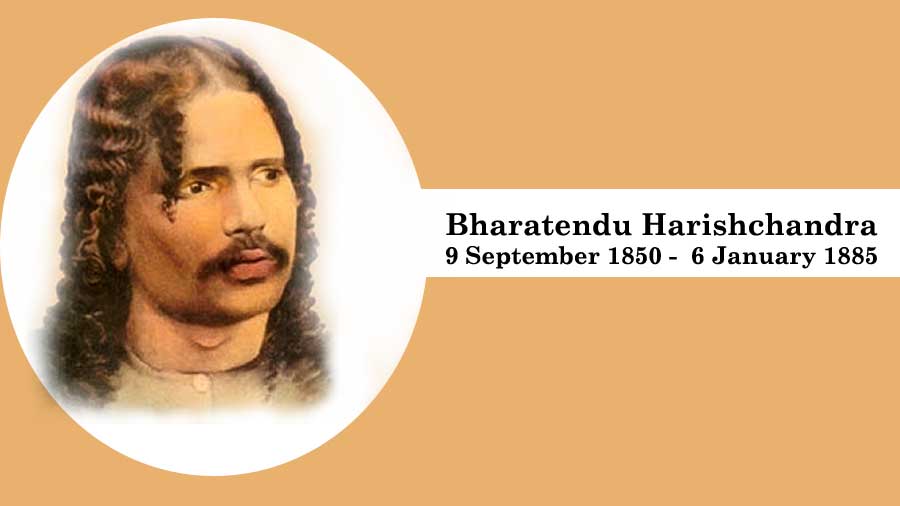
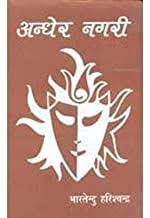
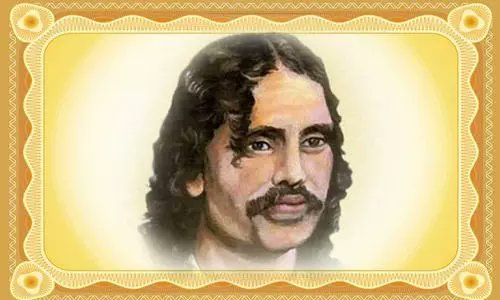
![knowledge of various kinds.Should be taken from all countries, but propagated in the mother tongue.”]- Bharatendu Harishchandra, ‘Taken from his famous poem, मातृ-भाषा के प्रति (For the Sake of Mother-Tongue or Towards Mother-Tongue)’Bharatendu knew well that organizational knowledge of various kinds.Should be taken from all countries, but propagated in the mother tongue.”]- Bharatendu Harishchandra, ‘Taken from his famous poem, मातृ-भाषा के प्रति (For the Sake of Mother-Tongue or Towards Mother-Tongue)’Bharatendu knew well that organizational](https://pbs.twimg.com/media/ErS3kneUYAEZbQh.jpg)

